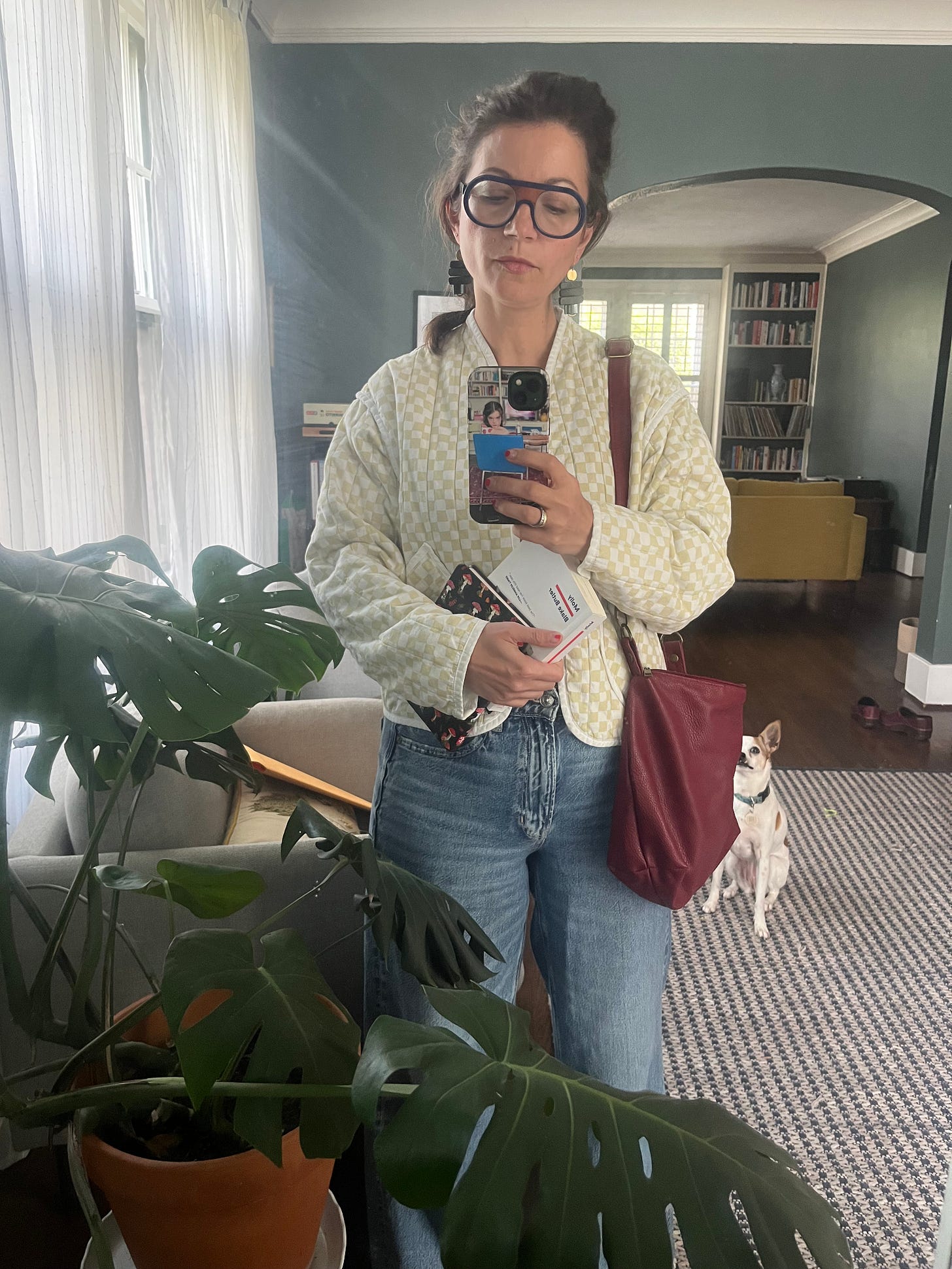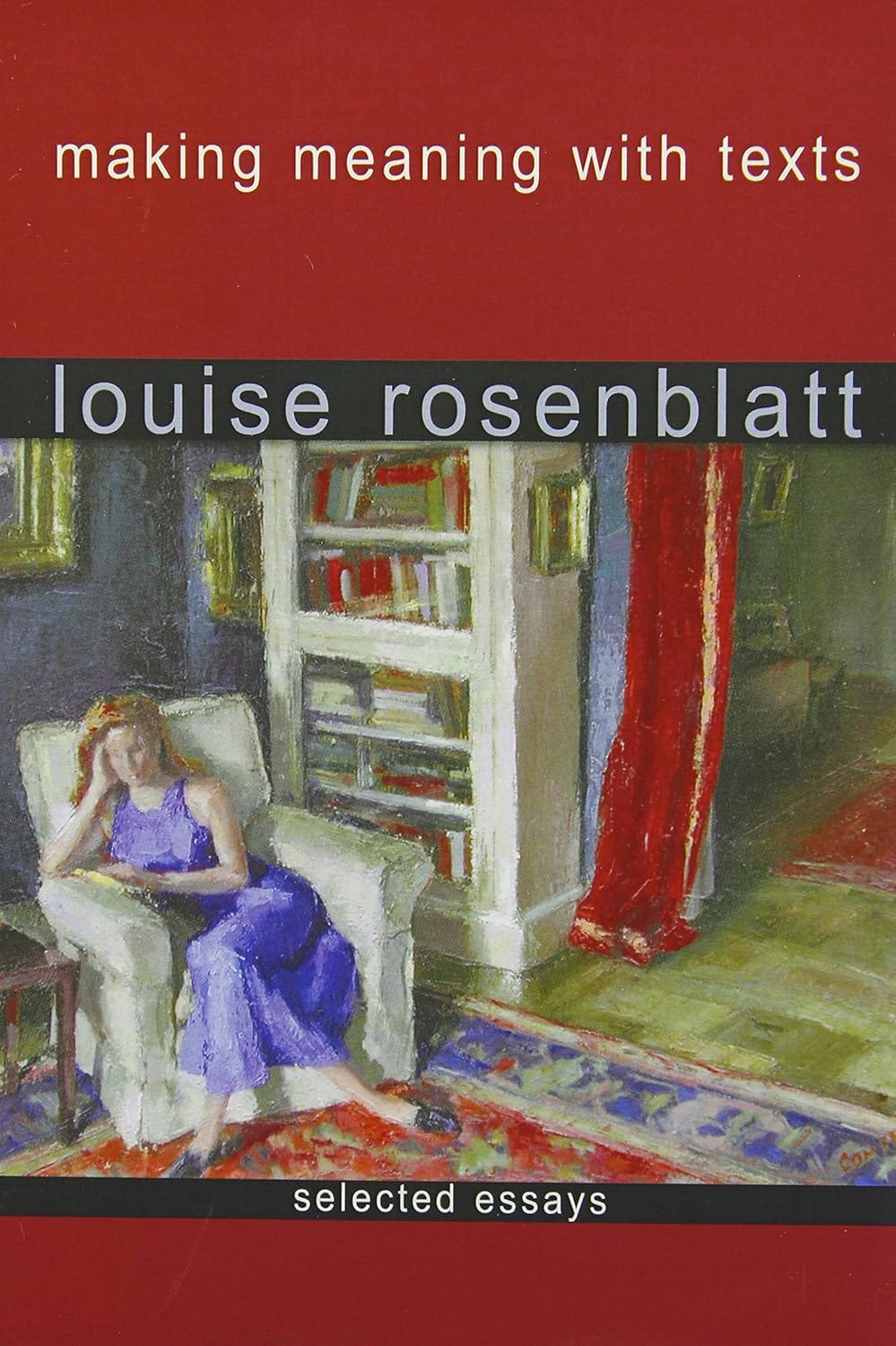Issue 118: The knowledge of feeling
A year of reading "wrong"
When I started writing A Reading Life a year ago, I felt like I was trespassing.
At forty-something, already deep into a career and shaped by a childhood under communism—where authority carries the weight of inevitability—I had been trained, almost at the cellular level, to defer to credentials. Experience. Expertise. I had none of those when it came to literature. Sure, I read. But who was I to talk about books online? Let alone expect anyone to care?

And yet, I kept going. Not because I felt qualified—but because I felt compelled. My fear of being an amateur never really went away. It still hasn’t. But the tug of curiosity, of instinct, of emotional urgency—I couldn’t ignore it.
📚 Learning to Read "Wrong"
As I tiptoed into the world of literary criticism, I quickly discovered what seemed like an unwritten rule: the “right” way to read is objectively, analytically, without sentiment. Your feelings don’t belong here. To interpret a book through the lens of your own emotions, life, or context? That was not criticism. That was indulgence. A mistake. A waste of paper.
When asked about the work of book-reviewing, Claire Messud says:
Now, I know as a writer that there are two kinds of reviews: there are reviews that are nice or are not nice, and there are reviews that are engaged with what you’re trying to do as a writer and those that aren’t. Anything that seeks to engage with what I’m doing, I’m grateful for. I might feel wounded or sad if the reviewer doesn’t feel I did what I set out to do, but as long as they’re trying to understand what I set out to do then that feels like a gift. So, for example, the number of US reviews of The Burning Girl that began “This is a YA novel.” And it could be a nice review or a not nice review, but I’d think: “Meh. That’s a waste of paper.” And so that’s what I try to do myself as a reviewer: trying not to ask the question “Do I like it?” but “What is it? And what is it trying to do?”
I respect the sentiment. There’s an elegant purity about close reading as Messud understands it, something almost athletic about it — like a muscle you are trying to flex. But it’s not how I primarily read.
I read to feel. I read to recognize something unnamed inside me. I read to feel less alone. I don’t need to like a book, necessarily—but I do need to feel with it. Otherwise, what’s the point?
📚 The Relief of Rosenblatt
Just when I started wondering whether my way of reading was somehow illegitimate, a reader of this newsletter1 mentioned Louise Rosenblatt in the comments. It felt like someone opened a window in a stifling room.
Rosenblatt rejected the idea that meaning lies hidden within a text, waiting to be unlocked by the properly trained critic. Instead, she argues that meaning emerges in the transaction between reader and text. It’s not that you bring feelings to a book. It’s that the book needs your feelings to mean anything at all.
Her framework gave me language for the kind of reading I had always done. She called it aesthetic reading—reading not to extract facts, but to experience. To engage. To feel. It wasn’t a flaw to read emotionally. It was a method. Reading Deborah Levy with my whole body wasn’t amateur hour. It was the kind of knowledge that comes from being alive.
📚 What Changed
If there’s anything worth commemorating after this year of writing, it’s not the number of posts or subscribers or even the books I covered. It’s the way reading cracked something open in me. Writing the embarrassment I used to hide—my “wrong” way of reading—became my favorite way to talk about books, about myself, about the world. What once felt like a liability became the truest way I knew how to connect.
I used to worry that emotion was the enemy of critical thinking. Rosenblatt taught me that it’s the doorway. Feeling deeply isn’t the opposite of analysis—it is analysis. It just starts in the body, not in the footnote.
Reading publicly has been weirdly intimate. Every time I hit publish, I wonder: Is this too much? Too personal? Too sincere? But what I’ve come to believe is that when we read closely, emotionally, subjectively, we are not exposing our ignorance—we are surfacing our aliveness. Looking back, the books that moved me most were about rupture and reinvention, about queerness and estrangement and longing. They weren’t mirrors, exactly. They were portals. Reading them helped me ask different questions: What have I accepted without choosing? What kind of life do I want now?
These are not questions a critic answers. They’re questions a person lives.
Rosenblatt helped me see emotional reading not as a detour, but as its own kind of literacy. It’s not less rigorous. It just demands a different kind of presence. To read this way is to admit you’re changed by what you read—and that’s a risk. But also a gift. I’m not here to explain what a book means. I’m here to tell you what it did to me.
And I think that’s enough.
And some questions for you:
How do you describe yourself as a reader?
What shapes your experience of a book—your location in life, your mood, your past selves?
If you’re the wonderful human who introduced me to Rosenblatt, please write me—I’d love to credit you for one of the biggest shifts in my reading life.





I love this piece, Petya! As someone who studied literature in grad school, I would describe myself as a naturally analytical reader and I actually had to teach myself how to get back into the feeling side of reading. I've spent a lot of time consciously discerning what I do and don't like, because that never mattered in school! When I taught high school English, I often told my students that tapping into their feelings was a great place to start with a book. From there, you can ask "how did the author make me feel that way?" And what better kind of analysis is there than that?!
For what it's worth though, I also love the Messud quote you cited. I think it is extremely important to engage with what a book is and what it's trying to do, but--unlike this quote seems to suggest--I don't believe that's mutually exclusive from asking if I like it. I don't think asking what a book is means cracking some code or the type of formulaic analysis that happens in classrooms. Rather, I think it's just taking the book as it is: what is it trying to say, what is it trying to do, and--yes!--what is it trying to make us feel? Without engaging in those questions, I think we sometimes see book reviews that are more or less comparing the book as it is with the book we wanted it to be. This definitely has it's place! Writing through pieces like that has helped me figure out myself as a reader, and that is such an important part of the reading practice. But for me, reading is a dialogue between book and reader, but I can't have an authentic dialogue if I'm not trying to understand the book in good faith.
Of course, there isn't one right way to read and review, and one of the things I love most about literary Substack is getting so see so many styles of reading taking place in public! I've grown so much as a reader by engaging with your reading and that of our nerdy book crew in this space!
To answer your questions for readers, I would describe myself as an unfocused and enthusiastic reader. I scurry from topic to topic, author to author, depending on how I feel. I see my appreciation of a book as being entirely subjective, saying more about me than it does about the book. For example, I was born without the interest most people have in astronauts, so it's difficult for me to enjoy a book about them, fiction or nonfiction. But I love books about hermits, and a book about one has a great chance of captivating me.
Thank you for this insightful essay!